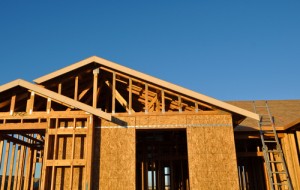Thinking about building your dream home in a planned community? Here at Derbyshire we are often asked about the construction costs for building in our neighborhood. Since price tends to be the number one criteria for potential buyers, knowing your total “all in” cost might be the single biggest factor you will consider. This article will outline the major components of the costs and fees associated with new home construction in a planned community.
Architectural Review Fees
As part of the Conditions, Covenants and Restrictions, most communities require buyers to pay review and/or impact fees to the homeowners association in order to review and approve their construction plans. Most communities have an Architectural Review Committee (ARC) to review and approve new homes. This cost is typically nominal to a few hundred dollars in most instances. Impact fees can be one time fees to cover the wear and tear through the community caused by heavy construction trucks and equipment. Lastly, some communities require property owners to post a construction bond which can be used to pay for unusual wear and tear or violations of the community covenants during the construction process. The construction bond is usually refundable so if your builder has no violations the bond amount will be returned to you.
Architectural Fees
Some buyers decide to use the services of an architect in the design and construction phase of their new home. The costs for using a licensed architect can range from a few thousand dollars to in the tens of thousands of dollars depending on their level of involvement. You can also choose from existing home designs created by architects that range from $750 to $5,000 depending on how much, or how little, you choose to “customize” the existing plan. Today, many high end builders offer design-build services meaning they can create or modify home plans for you. This option has become more popular for buyers who do not want to spend thousands on architectural fees.
Building Permit Fees
Building Permit fees are issued by the county, city or town where you will be building your new home. Building fees are typically based on the value of the construction and can range from a few hundred dollars to several thousand dollars. Some municipalities may also require impact fees, soil erosion fees or other environmental impact fees. A quick phone call to your local building inspector will give you a good idea of what fees will be involved with your new home.
Home Construction Costs
This category is by far the largest in terms of dollars as it includes all of the hard costs of your home. Sometimes you will hear it referred to as the “sticks and bricks” cost. Any builder you are considering should give you a full detailed cost estimate for your house, including his fees or profit for the job. Make sure that everything has been included in your new home estimate so you will not be surprised during the construction process. Here are a few questions to ask your builder before signing on the dotted line. Have you included the cost for my well or water tap fee? Does this estimate include my septic drain field or sewer tap fee? What utilities hook ups are included? Did you include an adequate budget for my driveway and landscaping? You also need to know whether your builder has given you allowances in certain categories (i.e. lighting and plumbing fixtures, kitchen cabinets, etc.) or has he chosen those items for you. Most licensed, insured and bonded home builders will certainly include all of these items in your estimate so you are well informed before the project begins.
You now have an overview of the things you need to know before you break ground on your dream home. While it may seem a little overwhelming at times, designing and building your new home can be one of the most rewarding experiences in your life. Having the appropriate information in the beginning will make the construction process rewarding instead of frustrating. Good luck and happy building!



No comments yet.